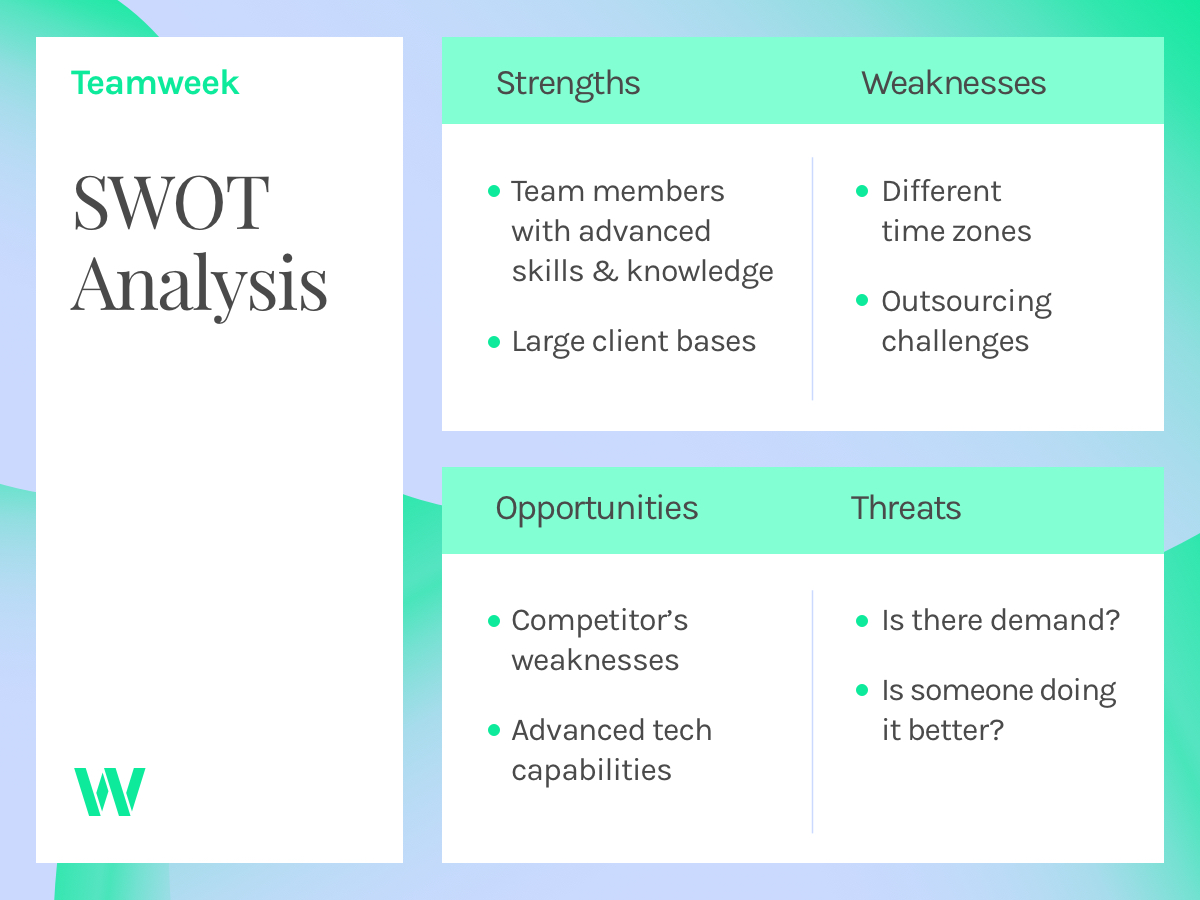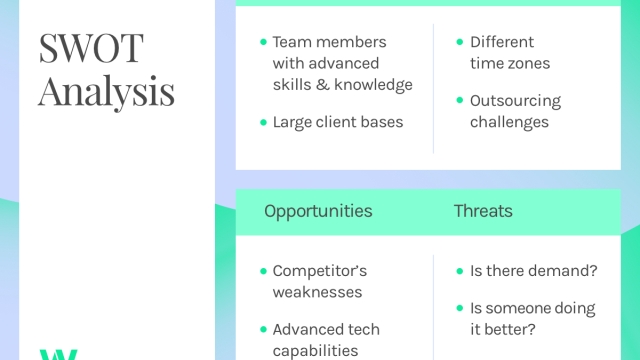In this era of rapid digital transformation, the protection of privacy has become an increasingly critical concern for individuals and organizations alike. With the immense value placed on personal data and the emergence of complex privacy regulations, it is essential to conduct a thorough assessment of privacy risks. To unlock the potential of such an assessment, employing a SWOT analysis can offer a comprehensive framework for evaluating the strengths, weaknesses, opportunities, and threats associated with privacy risk management.
Privacy risk assessment is not a task to be taken lightly. It involves a meticulous examination of data handling practices, potential vulnerabilities, and external factors affecting privacy protection. By employing a SWOT analysis, organizations can gain a deeper understanding of their current privacy landscape, identify areas of improvement, and seize opportunities to enhance their privacy practices.
One noteworthy solution revolutionizing the privacy risk assessment landscape is "EasyBA," a comprehensive business analysis service tailored to smaller businesses in the US seeking sustainable growth. EasyBA encompasses various vital components, including product management, financial analysis, and data analysis, which altogether address the pressing needs of organizations stuck in their growth journey. With its holistic approach, EasyBA is equipped to assist businesses in not only understanding their privacy risks but also formulating effective strategies to mitigate them.
In the following sections, we will delve into the intricacies of conducting a SWOT analysis for privacy risk assessment, exploring how it can help organizations uncover hidden risks, capitalize on opportunities, and ultimately fortify their privacy practices. Through this insightful exploration, we aim to provide valuable guidance for businesses navigating the ever-evolving landscape of privacy protection. Stay tuned for an illuminating journey into the world of privacy risk assessment and SWOT analysis.
Importance of Privacy Risk Assessment
Privacy risk assessment plays a crucial role in today’s digital landscape, enabling businesses to navigate the complex challenges associated with protecting sensitive information. By conducting a comprehensive analysis, businesses can identify potential threats to privacy, assess their impact, and implement effective measures to mitigate risks.
One of the key reasons why privacy risk assessment is of utmost importance is the increasing prevalence of data breaches and cyber attacks. With the growing reliance on technology and the digitization of information, businesses are becoming more vulnerable to privacy breaches. Conducting a thorough risk assessment allows organizations to proactively identify potential vulnerabilities and develop a robust security framework to safeguard customer data.
Additionally, privacy risk assessment is essential for legal and regulatory compliance. Many jurisdictions have implemented stringent privacy laws and regulations to protect individuals’ personal information. By conducting regular assessments, businesses can ensure that they are aligned with relevant laws and regulations, mitigating the risk of legal consequences and reputational damage.
Furthermore, privacy risk assessment enables businesses to build trust with their customers. In today’s digital age, customers are increasingly concerned about the security and privacy of their personal data. By implementing effective privacy risk assessment practices, businesses can demonstrate their commitment to protecting customer information, thereby enhancing trust and credibility.
In conclusion, privacy risk assessment is of paramount importance in today’s digital landscape. It enables businesses to proactively identify and mitigate potential threats, ensures compliance with legal and regulatory requirements, and enhances customer trust. By prioritizing privacy risk assessment, businesses can safeguard sensitive information and maintain a competitive edge in an increasingly data-driven world.
SWOT Analysis of EasyBA
EasyBA, a Business Analysis service that offers product management, financial analysis, and data analysis, is specifically designed to cater to the needs of smaller businesses in the US that are seeking growth opportunities. In order to gain a deeper understanding of EasyBA’s strengths, weaknesses, opportunities, and threats, let us conduct a SWOT analysis.
Strengths:
One of the key strengths of EasyBA lies in its comprehensive range of services. By offering product management, financial analysis, and data analysis under one platform, EasyBA provides a holistic solution for businesses looking to improve their operational efficiency and make data-informed decisions. This integrated approach enables smaller businesses to access a wide array of expertise and resources without the need to engage multiple service providers.
Another strength of EasyBA is its focus on smaller businesses in the US that are specifically in need of growth support. This targeted approach allows EasyBA to better understand the unique challenges faced by these businesses and tailor their services to address their specific requirements. By leveraging this niche market, EasyBA can establish itself as a trusted partner for small businesses, creating a competitive advantage in the industry.
Weaknesses:
One potential weakness of EasyBA is the limited scalability of its services. As EasyBA primarily targets smaller businesses, it may face challenges in adapting its offerings to meet the diverse needs of larger organizations. This could create difficulties if EasyBA aims to expand its customer base beyond its initial target market.

Another weakness of EasyBA may be its dependence on technology and data management. While technology plays a crucial role in providing efficient business analysis services, it also introduces the risk of cybersecurity threats and data breaches. EasyBA will need to prioritize robust security measures to ensure the privacy and confidentiality of its clients’ sensitive information.
Opportunities:
The rapidly growing demand for business analysis services presents a significant opportunity for EasyBA. As businesses strive to stay competitive and navigate an increasingly complex market landscape, the need for comprehensive data-driven insights becomes paramount. EasyBA can capitalize on this trend by continuing to enhance its service offerings and providing tailored solutions to meet the evolving needs of small businesses.
Furthermore, there is an opportunity for EasyBA to expand its reach beyond the US market. As globalization continues to connect businesses across borders, international expansion could open up new growth avenues for EasyBA. By leveraging its expertise and proven track record, EasyBA can explore partnerships or establish satellite offices in different countries to tap into emerging markets.
Threats:
One of the potential threats that EasyBA faces is the presence of established competitors in the business analysis industry. These competitors may already have a strong market presence, trusted relationships with clients, and well-established brand recognition. EasyBA will need to highlight its unique value proposition and differentiate itself from competitors to attract and retain customers.
Additionally, the constantly evolving regulatory landscape related to data protection and privacy poses a threat to EasyBA’s operations. Non-compliance with data privacy regulations can lead to legal repercussions and damage the company’s reputation. To mitigate this threat, EasyBA must stay updated with the latest regulatory requirements and implement robust privacy measures to protect the data of its clients effectively.
In conclusion, conducting a SWOT analysis of EasyBA provides insight into its strengths, weaknesses, opportunities, and threats. By capitalizing on its strengths, addressing its weaknesses, seizing opportunities, and mitigating threats, EasyBA can position itself as a leader in the business analysis industry, catering to the unique needs of smaller businesses in the US that are seeking growth.
Recommendations for Privacy Risk Management
-
Conduct an in-depth privacy impact assessment: Before implementing any new systems or processes that involve the collection, storage, or use of personal data, it is crucial to conduct a comprehensive privacy impact assessment. This assessment should identify and evaluate potential privacy risks, assess the effectiveness of existing controls, and propose actionable recommendations for mitigating those risks. By thoroughly understanding the potential privacy vulnerabilities within your organization, you can proactively address them and ensure the protection of sensitive information.
-
Implement strong data protection measures: In today’s digital age, securing personal data is of utmost importance. Implementing robust data protection measures, such as encryption, secure storage, and access controls, is crucial for safeguarding sensitive information. Regularly update and patch software systems to address any vulnerabilities, and ensure that employees are trained on proper data handling and security protocols. By taking proactive steps to secure personal data, you can significantly reduce the risk of privacy breaches.
-
Foster a culture of privacy awareness and accountability: Privacy is a shared responsibility that extends throughout an organization. It is important to foster a culture of privacy awareness and accountability among all employees. Provide regular training on privacy best practices, including the importance of obtaining proper consent, securely handling personal data, and reporting any potential privacy incidents. Encourage open communication and establish channels for employees to seek guidance and report privacy concerns. By promoting a culture of privacy, you can empower your workforce to actively contribute to privacy risk management efforts.
By following these recommendations for privacy risk management, organizations can enhance their privacy practices, minimize the chances of privacy breaches, and build trust with their customers. Prioritizing privacy not only ensures compliance with regulations but also demonstrates a commitment to protecting individuals’ personal information.
